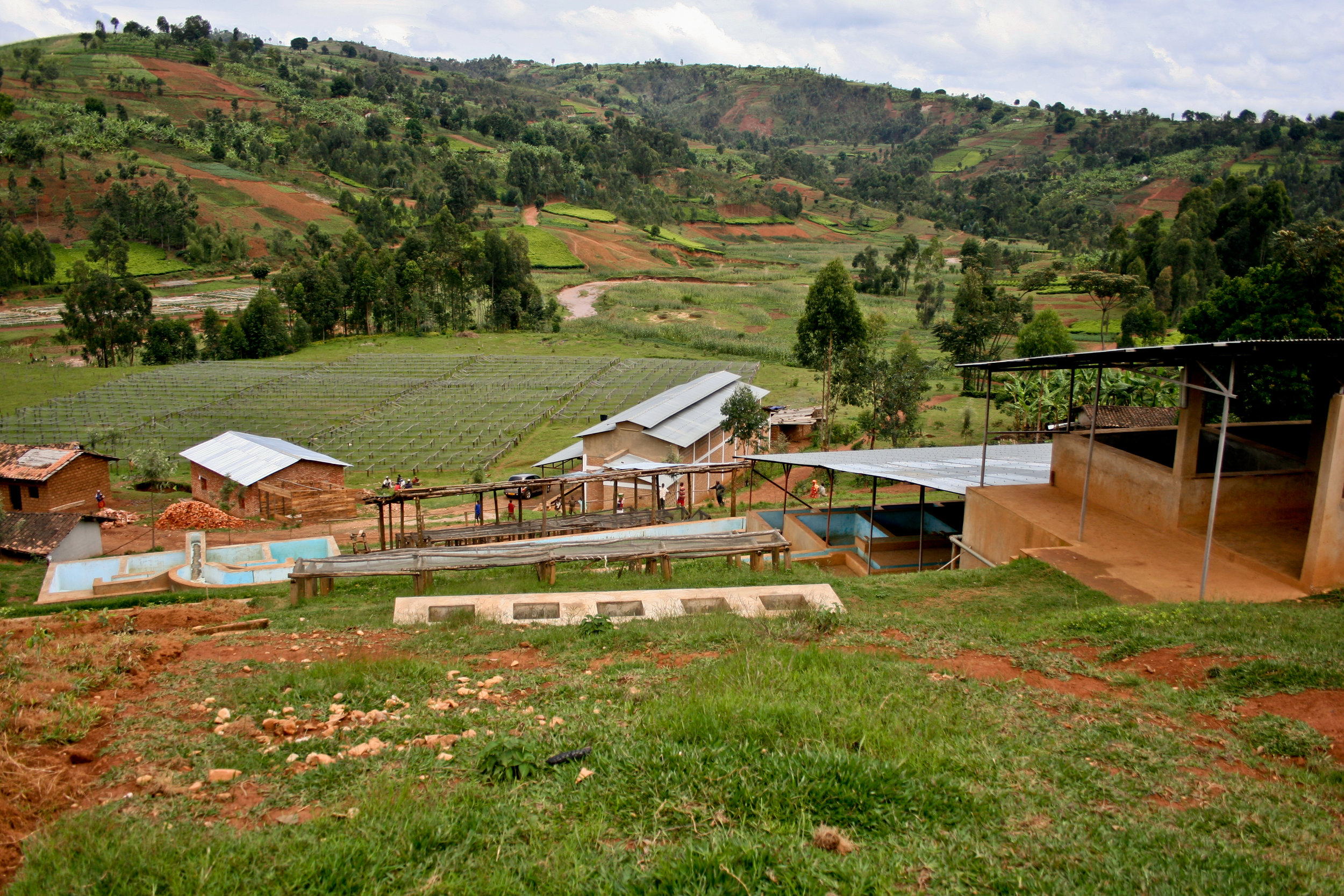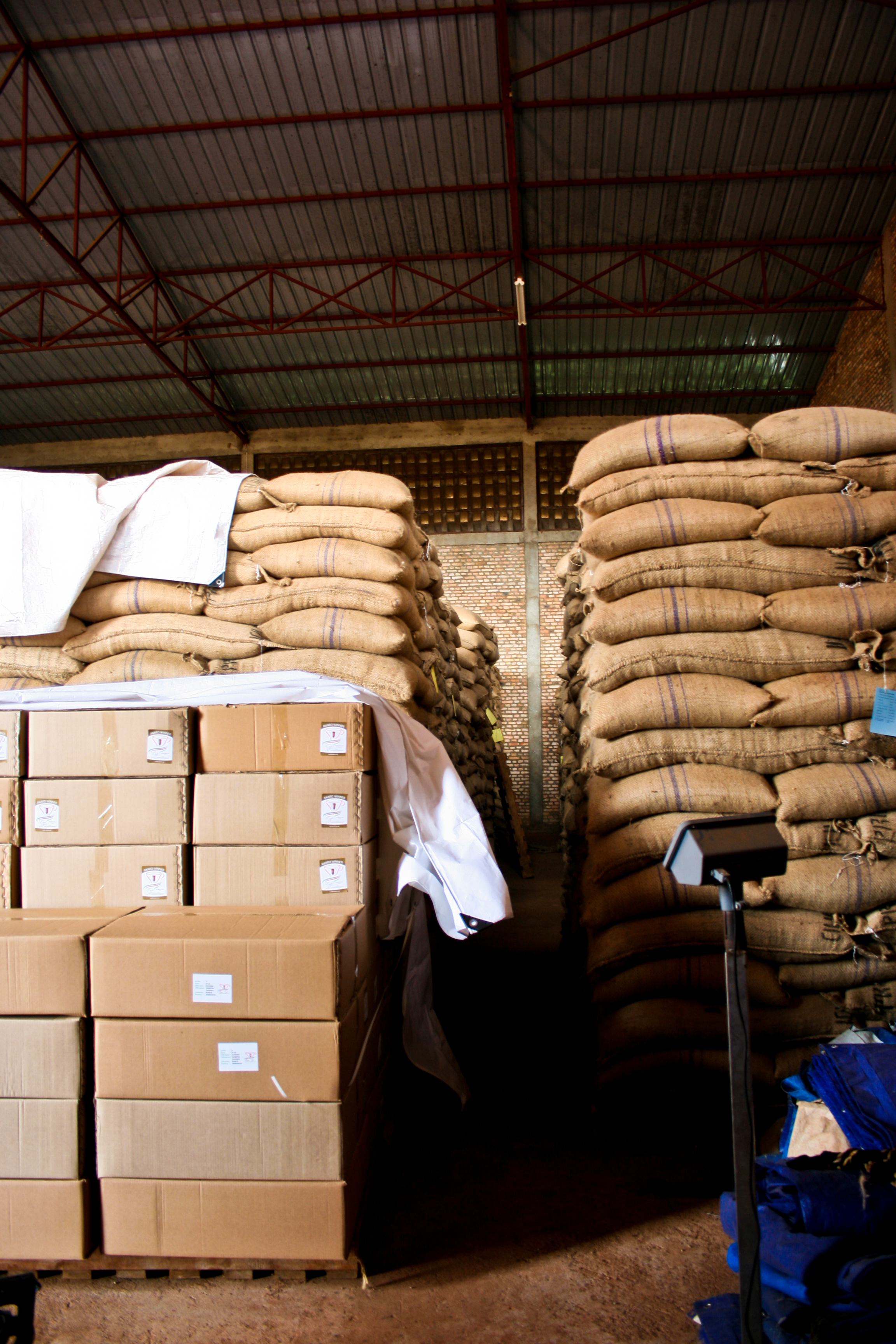 Reforming of Burundi’s coffee subsector began in 1990 but was never fully implemented until USAID’s entrance into the process in 2007. After a yearlong consultation process, USAID launched the Burundi Agribusiness Program (BAP) in 2008. In addition to its work in the coffee subsector, BAP’s mandate also covered reforming of Burundi’s dairy and horticulture subsectors. Like coffee, these subsectors were also highly disorganized, inefficient and unprofitable, but due to coffee’s preeminence as the country’s largest export, as well as current state of infrastructure (i.e. the government had invested in coffee more), coffee has received the most support from BAP’s activities.
Reforming of Burundi’s coffee subsector began in 1990 but was never fully implemented until USAID’s entrance into the process in 2007. After a yearlong consultation process, USAID launched the Burundi Agribusiness Program (BAP) in 2008. In addition to its work in the coffee subsector, BAP’s mandate also covered reforming of Burundi’s dairy and horticulture subsectors. Like coffee, these subsectors were also highly disorganized, inefficient and unprofitable, but due to coffee’s preeminence as the country’s largest export, as well as current state of infrastructure (i.e. the government had invested in coffee more), coffee has received the most support from BAP’s activities.
Many of BAP’s activities have been focused on increasing the quality of Burundian coffee, with the goal of turning Burundi’s coffee subsector into one that is appealing to specialty markets. During the course of my interviews I learned the recent focus on quality comes from a recognition that production levels cannot compete with more quantity-focused countries like Brazil and Vietnam. Burundian cherry producers own very small plots of land (i.e. less than one hectare with maybe 200 trees) and washing stations and dry mills are not typically equipped to handle large volumes of coffee. Everyone I spoke with, from cherry producer to SOGESTAL manager to washing station owner, believes a move toward high quality specialty coffee production is the right course for Burundian coffee. Coffee production is a time and resource intensive enterprise and coffee is a notoriously low-paying endeavor. Thus, those working in coffee in Burundi would like to see higher prices for coffee and believe the way to achieve this is by producing better quality coffee.
BAP’s team has consisted of consultants working in the specialty coffee industry in other countries (e.g. managers of coffee companies in the US), as well as local agronomic, cupping and marketing experts. Those who have experience working with BAP’s team have already experienced the benefits of their expertise. For example, winners from 2011’s Prestige Cup and this year’s inaugural Cup of Excellence, have consulted with BAP staff. The program ends at the end of November 2012, however, so the program’s long-term effects remain to be seen. Although people are disappointed that the program is ending, they remain driven and hopeful that the development of specialty coffee will continue.
The SOGESTAL
The majority of Burundi’s landscape includes coffee plantations and the government has divided coffee-growing regions in roughly the same way political provinces are separated. There are 17 SOGESTALs and each SOGESTAL is an autonomously run organization of the coffee washing stations (CWS) within each region. Before the government began selling its 160 washing stations, each answered to and were run by the SOGESTAL responsible for the region it was located in. SOGESTALs ran as a mix between business and government department. Although much of the SOGESTALs have since been sold to private people/companies, the government still retains shares, though they do not retain more than 14% within any of the SOGESTALs.
The SOGESTAL is responsible for running the washing stations within its region. Managers oversee harvest, processing and production, pay farmers for their coffee cherries and are responsible for finding buyers for coffee. Thus, SOGESTALs have always been in competition with one another, which is evident because some SOGESTALs have been and are better run than others.
Some of the people I interviewed believe that SOGESTALs will become obsolete because they simply cannot compete with the more efficiently run and profitable washing stations. SOGESTALs currently do not manage any of the privately run washing stations but still maintain the structure of a government department, including numerous staff and big overhead costs (e.g. offices and equipment, such as vehicles). However, SOGESTALs do maintain a function, especially when it comes to expertise in coffee agricultural practice and management of washing stations. Though many of the brightest and talented of these professionals are being hired away by private companies.
[gigya src="http://www.flickr.com/apps/slideshow/show.swf?v=71649" width="700" flashvars="offsite=true&lang=en-us&page_show_url=/photos/kaffa1/sets/72157631279228920/show/&page_show_back_url=/photos/kaffa1/sets/72157631279228920/&set_id=72157631279228920&jump_to=" allowFullScreen="true" ]
Two Markets
There are two types of processing methods/markets in Burundi: “washed” and “fully washed”. Coffee is termed “washed” when it is processed by hand; coffee that is “fully washed” is processed at a CWS. Sometimes cherry producers prefer pulping by hand because local buyers of the coffee are in higher competition with one another (denoted by prices they offer) than washing stations.
Local buyers are purchasers of either cherries or hand-pulped coffee, thus a washing station is a local buyer. Some washing stations have been/are accused of cheating farmers either by recording false volumes of coffee delivered or by selling at low prices. Cherry producers are able to negotiate with buyers of hand-pulped coffee and so they will sometimes choose this route. However, the government discourages these activities, resulting in cherry producers often having to sell in both markets.
From a quality perspective, I can see why hand pulping should be discouraged: cherry producers are not using machines to pulp the coffee; they are scraping fruit off on pavement, literally using their hands.
Dry Mills
There are eight dry mills in Burundi (a new one has recently been constructed in Gitega) – some are state-owned; others are private. Of the mills, SIVCA is widely regarded as the mill most capable of processing quality coffee. This is due to SIVCA’s equipment, ability to separate lots and the training and experience of the people managing and working at the mill. It is owned by a group of over 300 people and is the first privately owned mill in Burundi. It was built as a response to coffee professionals feeling like they had no control/ownership over coffee production, marketing and selling, in having to deliver to state-run mills. SIVCA is the mill that was contracted to process the winning lots from this year’s Cup of Excellence.
Thanks for reading,
Melanie
Note: The above and following posts contain both fact and opinions – of coffee professionals in Burundi and my own. There are many different views on how and whether government and USAID activities have worked. I have just collected data and have yet to analyze, so these posts will be updated as more information is revealed through my analysis.




